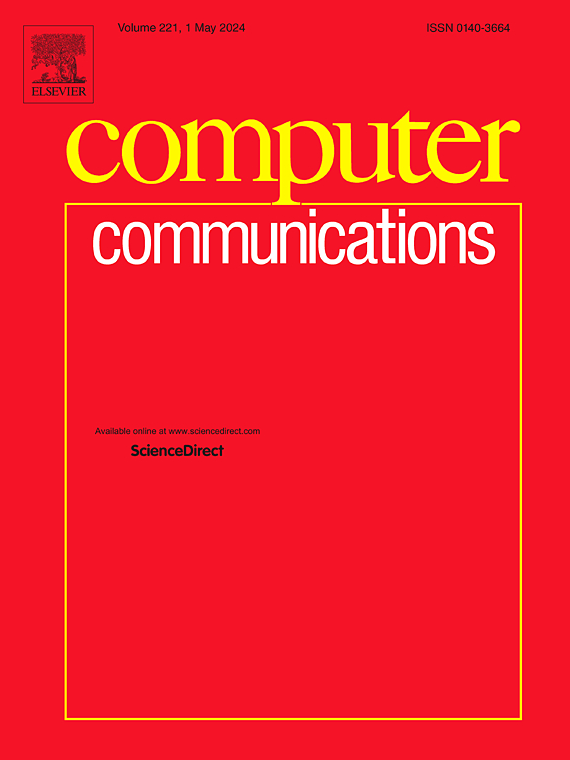NFTs for accessing, monetizing, and teleporting digital twins and digital artifacts in the metaverse
IF 4.5
3区 计算机科学
Q1 COMPUTER SCIENCE, INFORMATION SYSTEMS
引用次数: 0
Abstract
Digital twins and digital artifacts have become integral components of metaverse platforms, providing users with a rich, immersive, and interactive digital experience through the deployment of diverse digital twins and digital artifacts such as 3D avatars, images, and objects. To date, a significant challenge persists in the lack of practical mechanisms to enable seamless teleportation and cross-metaverse interoperability for these digital twins and digital artifacts. There is also a lack of trusted monetization methods that facilitate trading and leasing of digital twins and digital artifacts. To address these important challenges, this paper proposes a blockchain and Non-Fungible Token (NFT)-based solution that facilitates the integration and teleportation of these digital twins and digital artifacts by providing trusted metadata, verifying ownership, and ensuring the authenticity of digital creations in the virtual world. Key to our solution is the introduction of a bridging mechanism that enables cross-metaverse interoperability, allowing for the portable transfer of NFTs across decentralized metaverse platforms. In addition, our solution focuses on empowering original digital creators by enabling the monetization of their creations through the ownership management capabilities offered by NFTs. To reliably and securely store the metadata and content of tokenized digital twins and digital artifacts, we integrate into our solution the Interplanetary File System (IPFS), a decentralized storage system. To demonstrate the feasibility of our solution, we have developed and deployed all necessary smart contracts that govern the main functionalities and interactions of the proposed system on the Ethereum Goerli Testnet. We present our proposed system architecture, accompanied by informative sequence diagrams, algorithms, and testing details. We discuss how our proposed solution attains the main objectives outlined in the paper. We evaluate our proposed solution in terms of cost and security. We have made the complete source code of our smart contracts publicly available on GitHub.
用于在元宇宙中访问数字孪生体和数字艺术品并使之货币化和远程传送的 NFT
数字孪生体和数字人工制品已成为元宇宙平台不可或缺的组成部分,通过部署不同的数字孪生体和数字人工制品(如三维头像、图像和物体),为用户提供丰富的、身临其境的交互式数字体验。迄今为止,一个重大挑战依然存在,那就是缺乏实用机制来实现这些数字孪生体和数字人工制品的无缝传送和跨超时空互操作性。此外,还缺乏可信的货币化方法来促进数字孪生和数字人工制品的交易和租赁。为了应对这些重要挑战,本文提出了一种基于区块链和不可篡改代币(NFT)的解决方案,通过提供可信元数据、验证所有权和确保虚拟世界中数字创作的真实性,促进这些数字孪生体和数字艺术品的整合和远程传输。我们的解决方案的关键在于引入一种桥接机制,实现跨元宇宙的互操作性,允许在去中心化的元宇宙平台上可移植地传输 NFT。此外,我们的解决方案还注重通过 NFT 提供的所有权管理功能实现创作货币化,从而增强数字原创作者的能力。为了可靠、安全地存储标记化数字孪生和数字艺术品的元数据和内容,我们在解决方案中集成了星际文件系统(IPFS),这是一种去中心化存储系统。为了证明我们解决方案的可行性,我们在以太坊 Goerli Testnet 上开发并部署了所有必要的智能合约,以管理拟议系统的主要功能和交互。我们介绍了我们提出的系统架构,并附有翔实的序列图、算法和测试细节。我们将讨论我们提出的解决方案如何实现本文概述的主要目标。我们从成本和安全性方面评估了我们提出的解决方案。我们在 GitHub 上公开了智能合约的完整源代码。
本文章由计算机程序翻译,如有差异,请以英文原文为准。
求助全文
约1分钟内获得全文
求助全文
来源期刊

Computer Communications
工程技术-电信学
CiteScore
14.10
自引率
5.00%
发文量
397
审稿时长
66 days
期刊介绍:
Computer and Communications networks are key infrastructures of the information society with high socio-economic value as they contribute to the correct operations of many critical services (from healthcare to finance and transportation). Internet is the core of today''s computer-communication infrastructures. This has transformed the Internet, from a robust network for data transfer between computers, to a global, content-rich, communication and information system where contents are increasingly generated by the users, and distributed according to human social relations. Next-generation network technologies, architectures and protocols are therefore required to overcome the limitations of the legacy Internet and add new capabilities and services. The future Internet should be ubiquitous, secure, resilient, and closer to human communication paradigms.
Computer Communications is a peer-reviewed international journal that publishes high-quality scientific articles (both theory and practice) and survey papers covering all aspects of future computer communication networks (on all layers, except the physical layer), with a special attention to the evolution of the Internet architecture, protocols, services, and applications.
 求助内容:
求助内容: 应助结果提醒方式:
应助结果提醒方式:


